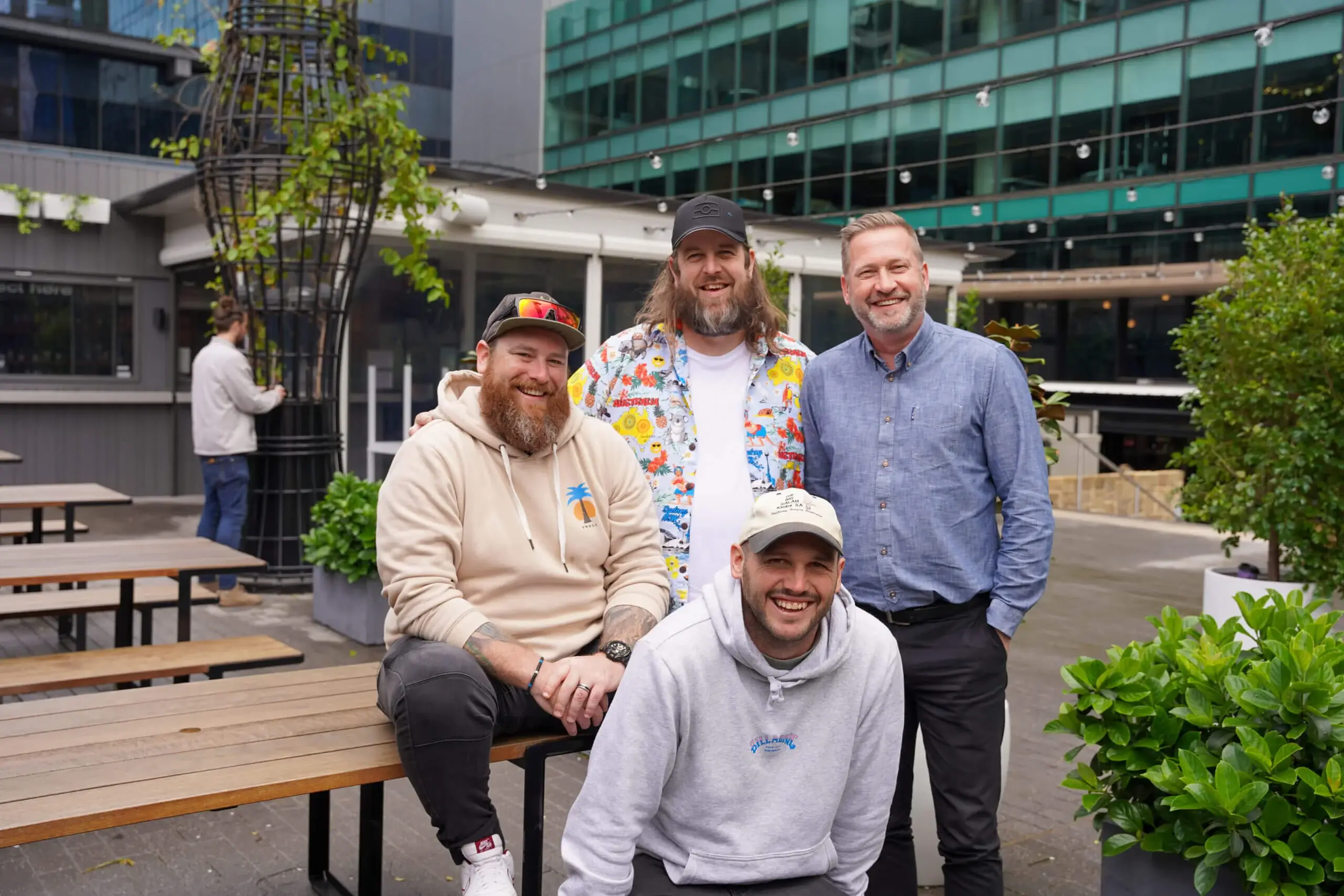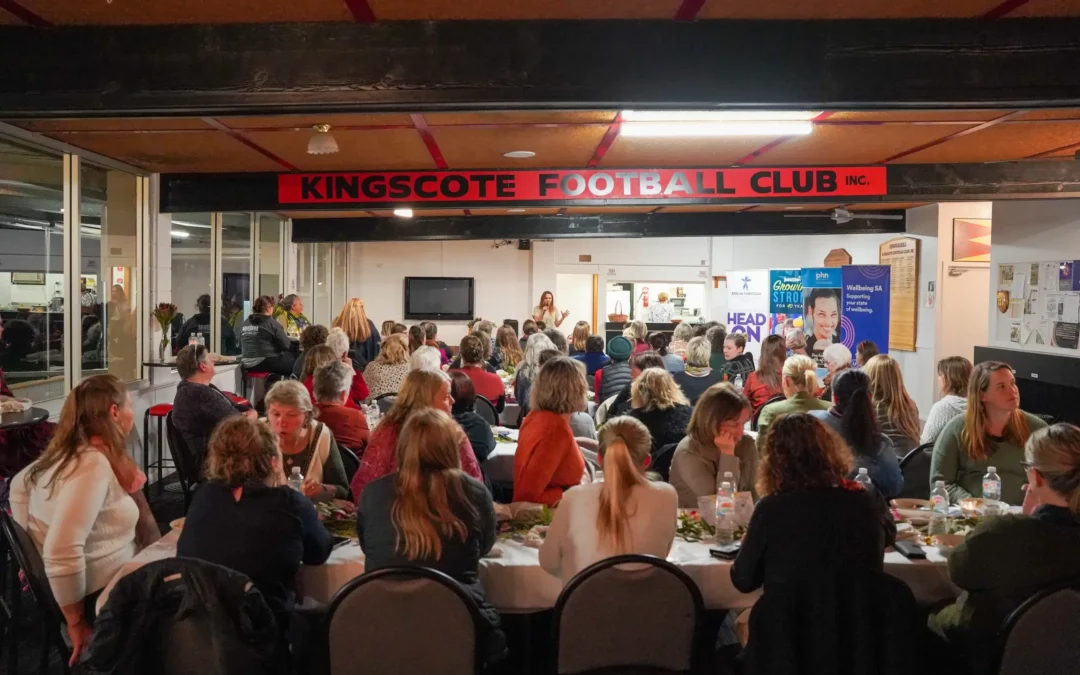As deadly bushfires spread across regions of South Australia at the start of summer 2019, John Mannion knew the impact would be devastating.
As the CEO of Breakthrough Mental Health Research Foundation, he understands the significant and long-lasting impact that natural disasters like bushfires can have on the mental health and well-being of impacted communities.
Australia’s Black Summer bushfires of 2019–20 brought widespread devastation across the country. The ferocity and scale of these bushfires posed significant challenges to communities, causing immense destruction, loss of lives, severe environmental impacts and long-lasting mental health problems.
But despite a high level of people experiencing significant distress or trauma-related symptoms in the aftermath of a bushfire, only a portion seek professional help – emphasising the need for mental health support and community-led care at a time when it’s needed most.

John Mannion, CEO of Breakthrough Mental Health Research Foundation, equipping the community with the skills and confidence to support those around them through Mental Health First Aid training.
Community-led care to promote post-bushfire recovery
Targeted recovery efforts provide an important means of building resilience in the community, empowering individuals to regain a sense of hope and control in the aftermath of such devastating events.
A national charity based in South Australia, the Breakthrough Mental Health Research Foundation recognised the need for increased mental health training and support following the Black Summer bushfires. Inquiries into natural disasters have spotlighted mental health and trauma training, as well as evidence-based community awareness training, as key strategies to re-engage impacted individuals and communities.
To support the state’s recovery and resilience following the destructive bushfires, the foundation set up free Mental Health First Aid® (MHFA®) training for affected communities in Kangaroo Island, Adelaide Hills, Yorke Peninsula, Eyre Peninsula, Fleurieu Peninsula and Kingston SE.
As an organisation dedicated to groundbreaking research that aims to transform the lives of individuals affected by mental health issues, Breakthrough wanted to ensure their local communities were equipped with the skills to provide informal, community-led care to support people grappling with mental health problems.
MHFA training formed part of Breakthrough’s long-term plan to support community recovery in the three to five years following the bushfires. The foundation teamed up with each of the state’s community resilience centres to offer MHFA training that would assist in providing baseline mental health skills and support local conversation and recovery.
“We knew that each community would recover at their own pace, so we wanted to provide the mental health literacy skills to support this recovery,” John explains.
“We commenced the training in the communities six months after the initial fires, to give people time to manage the initial crisis and their personal home and property recovery – and to wait until when the community felt they were ready.”
John says that they were flexible in their approach, letting the recovery centres set the pace to support the needs of each community and maximise opportunities for community members to participate.
“Members have shared the impact that having mental health first aid skills have had on them personally – from growing their confidence in helping others and understanding more about their own personal challenges, to the most impactful members sharing how Mental Health First Aid helped them to recover from their own suicidality.”
John Mannion, CEO of Breakthrough Mental Health Foundation
Communities like Kangaroo Island have taken a whole-of-community approach to the training, and now have a Mental Health First Aider® (MHFAider®) for every 30 people on the island.
Grants and corporate sponsorship have supported the sustainability of Breakthrough’s MHFA training program, allowing it to continue in the years since.
Kangaroo Island local, Sam Mumford, shares his struggles with mental ill-health after coming close to losing more than his farm following the Black Summer bushfires – and how Breakthrough was key to his recovery.
Increasing care in the broader community
Demand from across the community continues to grow as local organisations seek to increase capacity for community-led care in their settings. Schools have requested the training for teachers to provide evidence-based support to parents in their community.
Interest in the sports settings has also been strong across the state. Participation from sports organisations, from the Adelaide Football Club to local sports clubs, supports the foundation’s Mental Fitness Charter that trains members and players to contribute to their recognition as a “mentally fitter sporting club”.
Two regions have also extended the MHFA training to the state’s ambulance services, so that volunteer officers have the practical skills to initiate mental health conversations and support early intervention and hospital avoidance if appropriate.
Since the program was first introduced, Breakthrough has primarily focused on the delivery of Standard MHFA training to adults supporting other adults in the community. They have trained 10 Licensed Instructors – five in-house and five in local settings – to broaden their reach across the state.
The foundation has also added Youth MHFA to its offering, upskilling an existing Instructor to deliver the adults supporting young people-focused training across the community. John says the Youth MHFA training has been incredibly well received with participation, engagement and sharing of personal narratives and experiences paramount to local recovery. The foundation plans to increase the number of Licensed Youth MHFA Instructors to deliver the training across the state.
Ongoing support for bushfire-affected communities
Interest in the Mental Health First Aid training for communities impacted by the Black Summer bushfires of 2019–20 remains strong.
“Three years post-bushfire is a vital time to build skills,” John explains.
“This is when the community is no longer reaching out for help, and a time when many crisis services have been withdrawn. [The need for mental health support] is just as important, and the local community is helping to meet this need.”
Research shows that even five years after the Black Saturday bushfires in 2009, one in five people in high-impact communities reported symptoms of mental health disorders at twice the rate of the general population.
That same report indicates that participation in community groups is a key factor in supporting the resilience and recovery of these individuals – and the MHFA training provided by Breakthrough Foundation is providing just this.
“The opportunity to feel safe, share personal stories, open up about how they were feeling and then build a framework to help start further mental health conversations, supports and interventions has been empowering.”

John Mannion, Zane Kirkwood, Jeremy Edwards and Marc Ryan ready to deliver and share their lived experiences in one of the Men’s Meal’s and Mental Health sessions.


